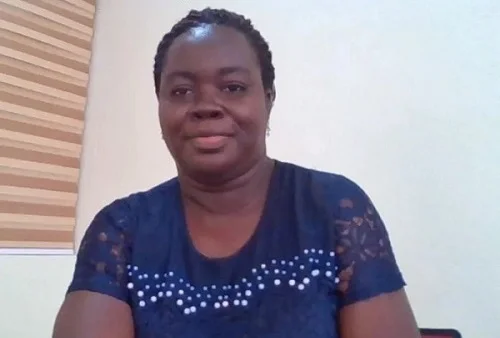Hot!
NACOC intensifies war against drug dealers

• Transportation of narcotic drugs is illegal and punishable
The Narcotics Control Commission (NACOC) has vowed to deal decisively with those who engage in transportation of narcotic drugs.
According to the Commission, it will not renege on its commitment in ensuring drastic reduction of all types of narcotic drugs in the country.
“The possession and attempted transportation of narcotic drugs is still illegal and punishable under the domestic law. We, therefore, assure the citizens of our commitment to keeping the influx of smuggling of all types of narcotic drugs to the barest minimum in collaboration with the relevant stakeholders.”
Mr. Francis Opoku Amoah, Acting Director, Public Affairs and International Relations of Narcotics Control Commission told this reporter on a telephone interview against the backdrop of the arrest of a Liberian woman, Ms. Wolo Maikplay Margaret, at the Kotoka International Airport on May, 14, 2022, for attempting to smuggle cocaine from Liberia to Bangkok, Thailand, on board Qatar Airways.
In all 30 pellets of cocaine weighing 227.2101 grammes were retrieved from her vagina and beneath her breasts when NACOC officials conducted physical search on her following a tip-off, as regards her nefarious activities.
The woman readily admitted her guilt of “attempted exportation and possession of narcotic drug without a Minister of Health Licence” which violated Sections 36 and 37 of the Narcotics Control Commision Act 2020 (Act 1019) respectively.
The culprit was arraigned at an Accra High Court in record time and was jailed 10 years by Justice Mary Ekua Yanzuh on her (convicts’s) own plea.
Ms Woho was again ordered by the court to pay a fine of 10.000 penalty units (GH¢ 120,000) or serve additional three years in prison when she failed to pay.
By Castro Zangina-Tong
Hot!
Swedru All Blacks back to winning ways, Roshan humble King Faisal

Sekondi Rospak FC made it eight wins in eight successive home games after three second-half goals from John Amoah, Joseph Ntow and Stephen Anthony Kofi. John Amoah opened the scoring in the 55th minute after a barren first half. Joseph Ntow added to the tally in the 56th minute before Stephen Anthony Kofi rounded things up in the 74th minute to give Rospak a 3-0 win over former Premier League side King Faisal.
Elsewhere at Swedru – leaders Swedru All Blacks humbled PAC Academy in an emphatic 2-0 win. Zayat Bubakari scored first for Swedru All Blacks in the 27th minute before Rudolf Junior Nana Kwasi Mensah made it 2-0 in the 34th minute. Swedru All Blacks are top of the table with 36 points – 4 points ahead of second placed Rospak FC.
Meanwhile, Former Premier League side Cape Coast Mysterious Dwarfs recorded their fourth successive home victory after beaten New Edubiase United 2-1 at the Robert Mensah Park. Enoch Odoom struck first for Cape Coast Mysterious Dwarfs in the 19th minute but Steven Asante equalized for New Edubiase United before halftime. After the interval, Godfred Eshun scored from distance in the 65th minute to help Cape Coast Mysterious Dwarfs secure all the points.
Here are the results in Zone Two

Hot!
Cervical Cancer alert: Avoid sex at early age

The Programmes Manager of Non-Communicable Diseases (NCDs) of the Ghana Health Service (GHS), Dr Mary Efua Commeh, has advised young girls to avoid sex at an early age.
This, she explained, will give the cervix the opportunity to mature before they become sexually active.
“You need to delay what we call the first sexual intercourse as much as possible to give the cervix the opportunity to mature before the person becomes sexually active,” she said.
Dr Commeh stated this in an interview with The Spectator in Accra on Tuesday as a part of the Cervical Cancer awareness month.
According to her, cervical cancer was the second leading female cancer in Ghana with a total of about 3,072 cases annually, and out of that, 1,815 deaths are recorded, representing more than 50 per cent.
She indicated that “If young girls are going to be sexually active, then you need to talk to your parents about being vaccinated.”
She explained that vaccinating young girls against human papillomavirus (HPV) has been found to be a very effective way of preventing cervical cancer.
“There are countries that started HPV vaccination years ago and they are not seeing any cervical cancers now because they would have eliminated most of the high-risk HPVs in their women. So if the high-risk HPV is not there, then obviously the results on cervical cancers are going to go down,” she added.
Dr Commmey said the HPV vaccination is recommended for young girls aged nine to 14 years, adding that it had been found to be highly effective, not just for cervical cancers but for other HPV-related cancers, such as anal cancers, cancers of the vagina, genital warts, amongst others.
She further elaborated that the idea is to put up a barrier before the HPV comes in and that once a young female encounters it, she is already protected.
She also mentioned that for cervical cancers, the main cause is called HPV infection, saying generally, all sexually active women acquire HPV at some point in their lives.
However, the Programmes Manager of NCDs at the GHS mentioned that the body has a way of clearing the HPV, explaining that it is a natural mechanism that goes on, unfortunately, there are a few women whose HPV persists.
Moreover, she noted that the numbers for Cervical Cancer tend to be much higher because at times, clients would wait, and try all sorts of medications before they finally report to the health facility saying “we actually lose some women before they get to the hospitals with over 75 per cent of the cases coming in its third and fourth stages.”
Dr Commey, therefore, called for public awareness while ensuring the availability of information for prevention and control.
By Jemima Esinam Kuatsinu







